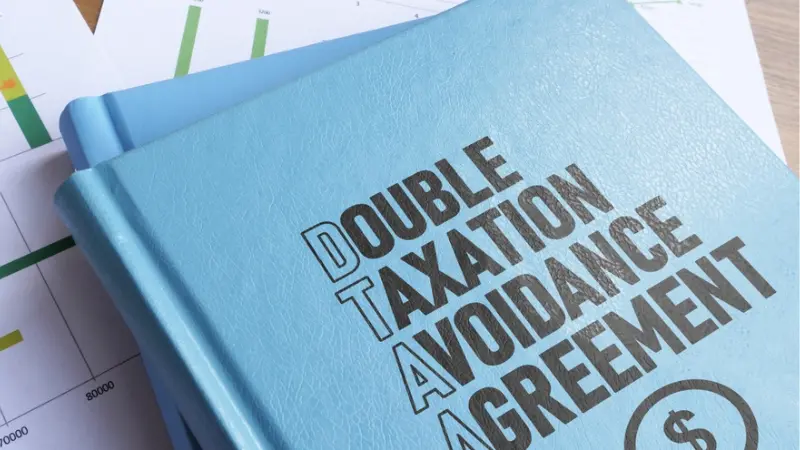
The word emergency is often used in TV debates as a black spot in the democratic history of the country. The youth today may not be aware of the struggles or the challenges faced by our elders in such difficult times. However, this is not the only kind of emergency that a country can face. Our Constitution highlights three types of emergencies, financial emergencies is one of them. Given here is the meaning of financial emergency and related details of the same.
Read More: How does Prime Minister’s Citizen Assistance And Relief In Emergency Situation (Pm Cares) Fund work?
What is Financial Emergency?
The Indian Constitution provides for three types of emergencies and related provisions for the same. Financial Emergency is highlighted in Article 360 of the Indian Constitution where it can be declared by the President of India.
As per this Article, the President of India can declare a financial emergency in the country if he is satisfied that a situation has arisen whereby the financial stability or credit of India or any part of its territory is threatened.
In such a situation, the Union Government becomes empowered to issue directions to the State Governments regarding financial matters and takes charge of directing the state to reduce their expenses to the specified extent as well as reserve all monetary bills passed by the State Legislature for further consideration. This Article has not been invoked ever or declared in the country to date.
What are the grounds for declaring Financial Emergency?
Article 360 empowers the President of India to declare a financial emergency in a situation where he is satisfied that the financial stability or credit of India or any part of its territory is threatened. The situations for declaring a financial emergency may include,
- Any cases of war or external aggression that can cause severe strain on the financial resources of the country
- Large-scale internal disturbances like riots, strikes, and civil disobedience that can disrupt the economy
- Natural calamities that can drastically impact the financial stability of the economy
- A severe economic slowdown or any other situation where the financial stability of the country is under threat
There have been two prime cases in India where Article 360 was expected to be declared, namely the financial instability in 1991 and the impact due to Covid-19 pandemic. However, in both cases, this emergency was not declared and other measures were used to being financial stability back to the economy.
What is the Parliament approval needed for a Financial Emergency and the duration of such an emergency?
A declaration of financial emergency in India can only be made by the President of the country on the advice of the Union Cabinet. The proclamation of financial emergency has to be approved in both Houses of Parliament within 2 months of the declaration failing which it ceases to be effective.
If this proclamation is made at the time when Lok Sabha is not in session or is dissolved during the said 2 months without approving the proclamation, the said proclamation will be in effect for the following 30 days from the first sitting of the Lok Sabha after its reconstitution.
This provision is applicable provided the Rajya Sabha has approved the proclamation for declaring a financial emergency. This emergency can be extended for an indefinite period of time until it is revoked. The President of India has the authority to revoke the financial emergency at any time after its proclamation without the approval of the Parliament. This declaration can be reviewed by The Apex Court in India and is therefore not beyond judicial review.
Declaration of a financial emergency is a rare and extreme measure that suspends some of the fundamental rights guaranteed by the Constitution. These provisions were added to the Indian constitution by Mr. B R Ambedkar in line with the provisions of the National Recovery Act 1933 of the United States to tackle the Great Depression of the 1930s.
What are the consequences of a Financial Emergency?
The declaration of a financial emergency as per Article 360 has significant implications. These are highlighted hereunder.
- Centralisation of authority
The primary effect of a financial emergency as per Article 360 will be the centralisation of the power in the hands of the Union Government. This emergency empowers the Union Government with extraordinary powers to issue directives to the states on financial matters to which they are bound to comply. The state governments can also be directed to reduce their expenses to the specified limits and restructure as per the directions of the President.
- Control over the Central Bank of the country
During a financial emergency, the Union Government has the authority to issue directives to the Reserve Bank of India (RBI). The RBI, on the other hand, is also required to adhere to certain guidelines and directions from the Union government during the implementation of the financial emergency.
- Restrictions on the powers of the Parliament
The Parliament is not allowed to increase the emoluments or the salaries or allowances of the members of the parliament during a financial emergency. These provisions are also applicable to the State Legislatures.
- Restrictions on the financial powers of the State Government
The State Governments also have to face various restrictions during the financial emergency. The monetary bills passed by the state legislatures can be reserved by the President for his consideration till the time of the financial emergency.
- Economic disruption
The biggest criticism of the financial emergency is the economic disruption that can be the aftermath or the result of invoking it. There can be a severe impact on the businesses and lives of the citizens on account of the measures taken by the government to curb the financial distress in the economy.
Impact of Financial emergency on the common man
The invoking of a financial emergency can have far-reaching consequences on the common man. The primary implication of this emergency would be total control of the country’s financial decisions in the hands of the Central Government.
Therefore, the government can take measures like devaluation of the currency to raise foreign exchange reserves, increasing import duties, and other costs giving rise to inflation which will have a direct impact on the cost of living for a common man.
Furthermore, the government can take measures like cutting subsidies, increasing taxes, reducing or altering socio-welfare programs, etc. The government will also have the authority to restrict withdrawals of the account holders from their bank account which will further have a drastic impact on the overall cost of living and standard of living. The overall economic disruption would lead to an economic slowdown and job losses that will ultimately increase unemployment which is already one of the major concerns of a country like India.
Conclusion
We have seen recent cases of financial emergencies in the countries like Sri Lanka and Afghanistan and therefore, a financial emergency is seen as the last resort to be implemented in cases of severe financial distress in the economy. The President invokes the financial emergency under Article 360 to navigate the drastic economic conditions that pose a threat to the overall financial stability of the country and can revoke it when the economic conditions stabilise.
FAQs
The three types of emergencies under the Indian Constitution are the National Emergency (Article 352), State Emergency (Article 356), and Financial Emergency (Article 360).
The financial emergency under Article 360 can be declared by the President of India.
Yes, The Supreme Court can review the grounds for a financial emergency under Article 360.
There is no time limit for the financial emergency under Article 360. It has to be approved though by both houses of the Parliament within 2 months of its proclamation through a simple majority failing with the proclamation ceases to exist.
Related Links


























